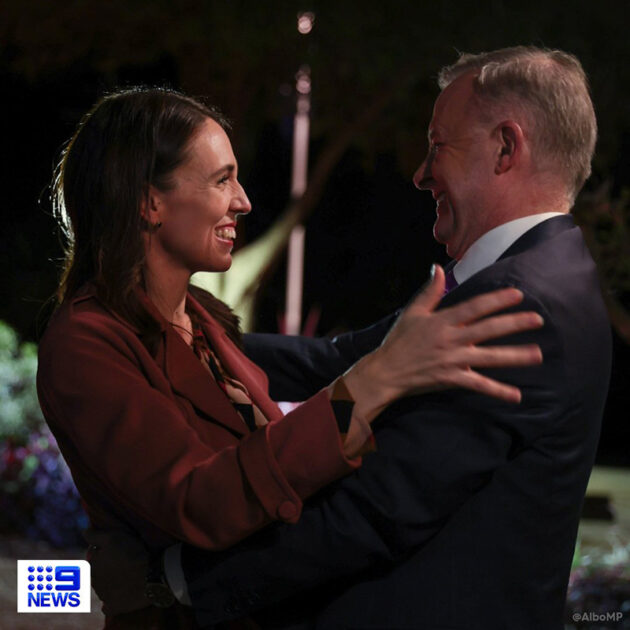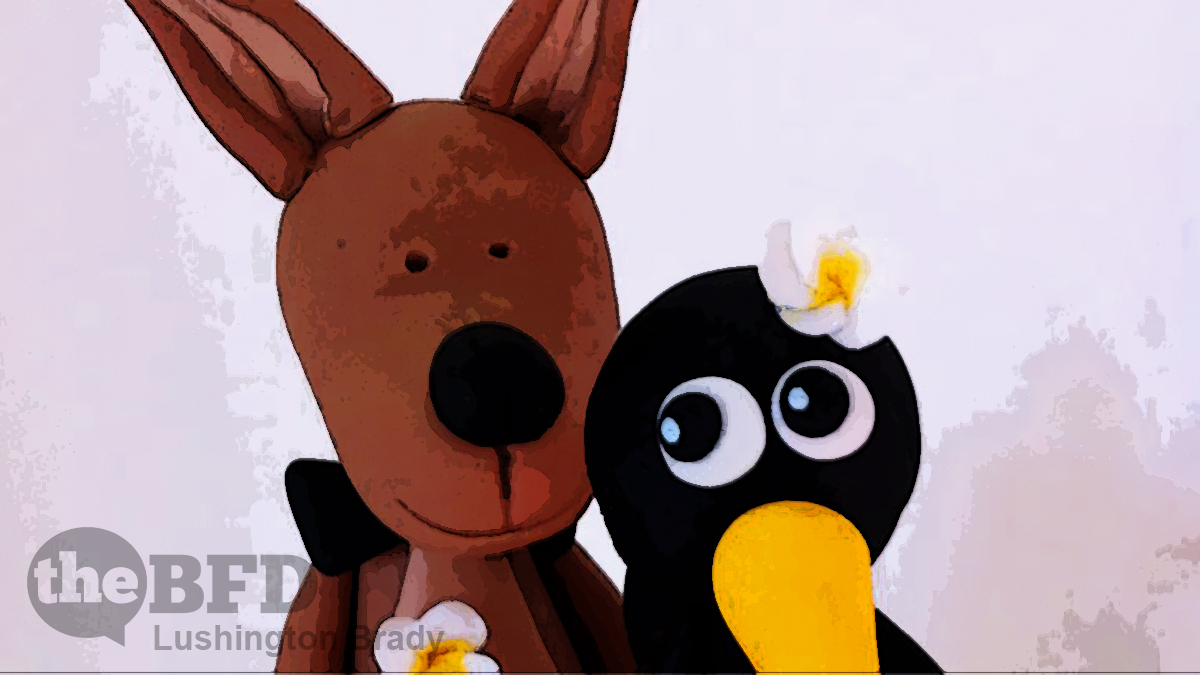Unlike the US Constitution, almost nobody but lawyers and political tragics ever read the Australian Constitution. Not entirely without reason: the US Constitution is one of the foundational documents of liberty, right up there with Magna Carta. While it doesn’t have the Jeffersonian flourishes of the Declaration of Independence, it still crackles with 18th century Enlightment flair.
By contrast, the Australian Constitution is a Victorian managerial document as dry as the land for which it sets out the rules. It’s no wonder I studied the US Constitution in high school, but only read the Australian Constitution on my own undertaking, much later.
Still, the Australian Constitution did pack a couple of surprises. One of which was Covering Clause 6, which declares that “The States” shall mean such of the colonies of New South Wales, New Zealand, Queensland, Tasmania, Victoria, Western Australia, and South Australia, including the northern territory of South Australia, as for the time being are parts of the Commonwealth.
The fact that New Zealand is even mentioned points to the strong historical ties between our nations. Unlike Australia, New Zealand was never explicitly formed as a nation (its constitution, like Britain’s, remains unwritten): somewhere between 1853 (self-governance) and 1919 (inclusion in the League of Nations), New Zealand just evolved into a nation.
In the interregnum, Australia – which formally declared itself a nation in 1901 – left the door open for New Zealand to join its Federation. Hence covering Clause 6.
Those historical ties have persisted ever since, in war, with the foundational ANZAC story, and in peace, with Australians and New Zealanders enjoying reciprocal visa-free travel arrangements. Even mutual access to welfare such as age pensions, disability support, even unemployment benefits.
But in that 100 years-plus, our nations have also each developed our own unique identities.
Make no mistake, an Australian and a New Zealander understand each other far better than even, say, Australians and Canadians (often cited as our nearest socio-political cousins), or New Zealanders and Britons. Certainly much better than our Western hemisphere or Commonwealth cousins such as the United States or South Africa.
On a personal level, I can attest that the north of the North Island is a place where a Tasmanian can feel very much at home in. But the further south I went, the more foreign the landscape became, beyond anything I’ve ever experienced in Australia. I loved it, make no mistake (Waikite remains one of my fondest memories), but it was very different. I’ve yet to have the fortune to experience the South Island – one of these days!
Our cultures are similarly same-but-different. I like to describe New Zealanders as like Australians, but nicer.
Even our accents have pursued similar-but-divergent paths. Foreigners can’t seem to tell the difference, but an Australian and New Zealander can instantly spot each other’s accents. I’ve written before about Australian and New Zealand slang: it may differ, but it makes sense. Cheers/Chur, mate/bro.
We even play sports differently. Australians play aerial ping-pong, Kiwis play choreographed sodomy.
How far should these reciprocal arrangements go, without our countries formally merging?
Should Australians and New Zealanders be allowed to vote in each other’s elections?
No.
This is the proposal that socialist besties Jacinda Ardern and Anthony Albanese have floated, in between gormlessly mugging for vacuous selfies and almost literally bumping uglies on the tarmac like a couple of stray dogs in heat.

This may seem like just a natural evolution of the Australia-New Zealand relationship. But nothing could be further from the truth.
As I alluded to above, Australia and New Zealand have nearly 200 years of divergent evolution behind us (not forgetting the drastically different initial conditions of a palaeolithic Australian indigenous culture patiently living out 60,000 years, versus an almost-yesterday Polynesian colonisation). Even our electoral systems have dramatically diverged (the closest thing Australia has to MMP is Tasmania’s Hare-Clarke system, and even that doesn’t have the pox of List MPs).
This isn’t a natural evolution at all: it is, in fact, just a plank of the globalist agenda.
This may sound conspiratorial, but it’s all a part of the Long March through the Institutions of globalism. When the globalists parrot John Lennon’s neo-communist dirge, Imagine, they really mean the part about “no countries”.
Erasing borders is one of the dearest goals of globalism. Whether it’s the Eurozone or unfettered illegal immigration across the Rio Grande and the Mediterannean, the globalist agenda is openly one of global governance. Australian Greens leader Bob Brown explicitly outlined the agenda, with his “Fellow Earthians” speech: For comprehensive Earth action, an all-of-the-Earth representative democracy is required. That is, a global parliament.
Dismantling international borders is a key part of that agenda. Everywhere, across the world, the globalists are intent on erasing national borders. The EU, the US southern border, the African Union, and so on. It’s why the globalists were so enraged by Brexit, for throwing a spanner in the works, and why Klaus Schwab assiduously recruits, re-educates and deploys his globalist minions.
Erasing the borders between New Zealand and Australia is just one small plank in that agenda. That’s not to say that Albanese and Ardern are somehow taking orders from a Bond villain-like Klaus, ensconced in his secret lair (well, not Albanese, anyway). But, as Bob Brown’s paean to global government shows, it’s the mindset we’re dealing with. (Full disclosure: I once subscribed to the same. I wasn’t taking orders from anyone, either: it was just “what everyone knows”.)
But, as Dutch politician Thierry Baudet wrote in his doctoral thesis, borders matter: “To uphold borders is to claim jurisdiction; to claim the right to decide on the law”.
Borders matter because they are the foundation of the nation-state. Sovereignty is defined as the exclusive and supreme law-making ability within a defined territory. That’s what a border means: sovereignty.
The basic unit of a sovereignty is the citizen. A citizen a native or naturalised member of a state or nation who owes allegiance to its government and is entitled to its protection. This is why New Zealand-born criminals are deported from Australia (and why Australia could and probably should shoulder the burden of imprisoning a Brenton Tarrant).
A tourist is neither a native nor a naturalised member of a state. Nor is a resident, however long they may reside in a country. They do not owe allegiance to its government, nor are they entitled to its protection.
The only person who does is the citizen. Because a citizen has sworn allegiance to that state and its government: this is the defining feature of citizenship ceremonies, the swearing of allegiance.
A visitor or a resident does not so swear allegiance, even if they pay taxes.
Only a citizen should be allowed to vote.
Certainly, New Zealanders have a high uptake of citizenship in Australia. But the fundamental difference between a New Zealander who takes up Australian citizenship and a New Zealander who is merely resident remains. And vice-versa.
Softening the distinction between residents and citizens in Australia and New Zealand is just a part of a global push to similarly erase nation-states.
And that’s the reason why the prospect should be strenuously opposed, no matter how much brotherly feeling exists between our nations.

